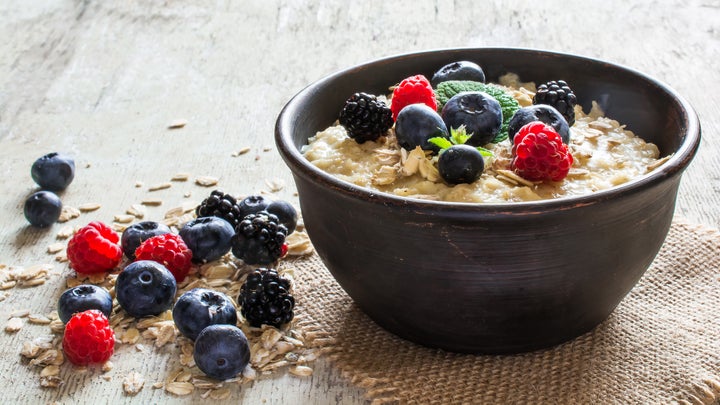How to Support Heart Health at Every Age
Maintaining heart health is a lifelong endeavor. Whether you’re 30, 40, 50, or 60+ here are some tips for supporting heart health at any age.
7 minute read
Last Updated December 13, 2022
Maintaining heart health is a lifelong endeavor. Whether you’re 30, 40, 50, or 60+ here are some tips for supporting heart health at any age.
7 minute read
Last Updated December 13, 2022

Without proper attention, age-related changes can throw off the balance of healthy cholesterol levels, blood sugar levels, and other essential components for optimal heart function. Understanding how your cardiovascular system changes over the years will inspire you to take a proactive approach to support your heart at every age.
Gradual physiologic changes to your heart and blood vessels start as early as your 20s. These can include a change in heart rate or rhythm, changes to the shape of the heart and heart valves and blood vessels. This means that your 30s are the perfect time to focus on preventative measures.
Start with developing a routine with your physician to have annual wellness exams, including blood pressure and cholesterol screenings. Know your family health history to better understand potential risk factors. Discuss any concerns with your doctor, so they can recommend testing as needed.
A healthy lifestyle and diet are two important components for promoting optimal heart health. A plant-based diet that is low in saturated fats and refined sugars and high in fiber can help keep your heart healthy. You also want to ensure you get plenty of essential nutrients that support optimal heart health.
Develop and stick to an exercise routine, aiming for at least 30 minutes a day. Include both cardiovascular exercise and strength training to build muscle and support healthy circulation. It is much more difficult to build muscle later in life, so when you develop these good habits now, your heart will thank you later.

You may begin to feel the challenge of balancing healthy lifestyle choices with work and family commitments. Consequently, cholesterol, blood sugar levels, blood pressure, and weight may change.
Additionally, nitric oxide production begins declining in your 30s and continues to decline by 20% every ten years. Nitric oxide is an important neurotransmitter that plays a key role in cardiovascular and circulatory health and is essential for arterial wall and platelet function.
While you may think you don’t have the time to exercise, it is important to fit in regular cardiovascular and strength training workouts. Develop a morning routine that helps you stick to new healthy habits.
♦ As little as 5 minutes of exercise will provide heart health benefits. Do some light yoga or go for a quick walk.
♦ The all-in-one nutrition of CardioFitMD® provides essential nutrition support for heart and circulatory health and promotes healthy energy and stamina.
A daily scoop of CardioFitMD® also delivers a potent dose of beetroot powder, which promotes nitric oxide production to promote arterial wall health and healthy circulation for oxygen and nutrient delivery to muscles for proper energy, and overall heart health.
In addition to a healthy routine, see your doctor annually even if you feel fine. Getting regular cholesterol, blood sugar, and blood pressure screenings is essential for promoting long-term heart health.
♦ A healthy blood pressure reading is 120/80 mmHg or less.
♦ A healthy blood sugar reading is between 70 and 120 mg/dl.
♦ Healthy cholesterol levels are less than 100 mg/dL for LDL and greater than 40 mg/dL for HDL in men and 50 mg/dL in women.
As you begin to take on responsibilities, now is a good time to explore stress management techniques. You can help promote heart health with daily meditation, yoga, deep breathing, or spending time in nature.

Physiologic changes to the heart and blood vessels continue, and the heart cannot beat as fast during physical activity. This can work against your activity and weight management goals. Additionally, hormone changes start to impact cholesterol levels.
The American Heart Association recommends getting your cholesterol checked every five years, your blood pressure checked at least every two years, your blood glucose levels checked every three years, and your body mass index checked during every regular healthcare visit.
Exercise can help support blood vessel elasticity to promote healthy circulation. If you haven’t been exercising, now is the time to start. Pick something that you enjoy and start slowly. If you’ve been exercising for a while, change up your routine so that you won’t get bored.
Continue to follow a balanced, nutrient-rich diet to support healthy cholesterol levels. Choose foods low in saturated and trans fats, sodium, and added sugars. Focus on including foods like colorful, nutrient-dense fruits and vegetables and fiber-rich whole grains.
To help maintain cholesterol levels within a normal range, add CholestMD® to your routine. The powerful combination of niacin and Bergavit®, two potent ingredients, aids healthy blood lipid levels and circulation for comprehensive cholesterol and cardiovascular support.

Vitamin B12 deficiency affects roughly 20% of adults over the age of 60, according to the National Institutes of Health (NIH). B12 is one of the most important nutrients for cardiovascular health. It helps maintain healthy hormone levels to support arterial integrity and healthy blood flow and supports healthy blood lipid levels. Metabolism also tends to slow down as part of normal aging.
Metabolism slows, and you may also be less active, so adjust your diet accordingly to maintain a healthy weight. Focus on foods that are fiber-rich, nutrient-dense with plenty of plant-based protein, and avoid foods that will work against your goals of long-term heart health.
People often think they are “too old” to exercise in their 60s, but in reality, regular physical activity supports healthy aging. Injuries are more common among this age group, so activities can be modified, but there is no reason to stop exercising at any particular age.
You can also ask your doctor about an ankle-brachial index test, which measures the pulses in your feet to examine arterial health and blood flow.
To make sure you don't fall into the 20% of adults over 60 with vitamin B12 deficiency, consider adding 1MD Nutrition’s Vegan B12 to your balanced diet. Vegan B12 promotes the body’s ability to produce red blood cells and maintain proper homocysteine levels, which aids in healthy blood flow and arterial integrity.

The most common concerns during the 70s and beyond are blood pressure and cholesterol. As age-related changes to the body impact other systems, adults over 70 may not be able to move around as much and may not eat as much either.
Exercise continues to be important in maintaining cardiac health. At this age, you can help support healthy circulation by doing up to 150 minutes of low-impact physical activity per week, such as walking, cycling, or swimming.
Maintaining good nutritional habits is essential at this age. Eating less is common as you age, but even with smaller meals, you can still get the nutrients you need to support heart health.
Aging is a gradual, continuous process that begins in early adulthood. Bodily functions begin to change during early middle age, and even though you can’t control these changes, they don’t have to slow you down. By understanding age-related changes to the heart, you can take a proactive and preventative approach to promote your best health at every age.
Dr. Heather Shenkman

Dr. Heather Shenkman is a board certified interventional cardiologist. She completed a six year program at Albany Medical College, graduating at the age of 23. She completed her residency at Henry Ford Hospital, cardiology fellowship at the University of Rochester, and interventional cardiology fellowship at the esteemed Tufts Medical Center in Boston.
Be first in line for major savings, fitness and nutrition tips, health news, and more